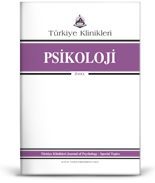Aile klinik psikoloji ve psikiyatri disiplinlerinde, çocuk gelişimi ve işlevselliği için en önemli etkenlerden biri olarak kabul edilmektedir. Çünkü aile, çocuğun ilk ve biçimlendirici sosyalleşme deneyimlerini aldığı yerdir ve çocuk büyüse bile ailesine ihtiyaç duymaya devam etmektedir. Çocuğun fiziksel, ruhsal ve duygusal gelişiminin sağlıklı olabilmesi için normal bir ailede büyümesi gereklidir. Ancak, ailenin kendisine has yapılanmasında ve fonksiyonlarında sorunlar olması aile için psikopatolojiyi beraberinde getirebilir. Ailenin yapısal örgütlenmesinin patolojik olması hem aile içi ilişkilerin hem de aile huzurunun bozulması anlamına geldiğinden gelişimsel ve ruhsal bozuklukların ortaya çıkması kaçınılmazdır. Özellikle normal görünen ancak kendi içinde patolojik bir yapılanmaya sahip ailelerin kendi öz çocukları üzerindeki etkileri oldukça yıkıcıdır. Günümüz araştırmalarının bir sonucu olarak, aile içinde var olan ve psikopatoloji ile doğrudan ilişkili bazı faktörler belirlenmiştir. Bunlar, ebeveyn-çocuk ilişkisi, aile yapısı, bağlanma, ebeveynler arası çatışma ve boşanma, ebeveyn patolojisi ve çocuğa karşı kötü muameledir. Tüm bu faktörler birbirleri ile ilişki içindedir ve bütün aile sistemini derinden etkilemektedir. Aile üyelerinin, aile sisteminin birer yapı taşı olduğu düşünüldüğünde hem çocukların hem de ebeveynlerin ruh sağlığının bu etkenler ile ilişki içinde olduğu ve birbirleri ile de etkileşimde oldukları görülmektedir. Tarihsel süreçte, psikopatoloji ile ilgili çalışmalar patolojinin bir başka güç tarafından posesyon şeklinde ele geçirilme ya da bedendeki denge ve işlev bozukluğunun bir sonucu olarak değerlendirilmesinin ardından teori bazlı çalışmalar üretilmeye başlanmıştır. Teori bazlı bu çalışmalar alanyazında psikanalitik teori ile başlamakta, yapısal yaklaşım ve sistemsel yaklaşımla devam etmekte; kuşaklararası travma geçişi yaklaşımı ve psikotarihsel yaklaşım ile sürmektedir. Psikotarihsel yaklaşımda tanımlanan yardım edici ebeveynlik stilinin günümüzde arkadaş ebeveynlik stili ardında kötüye kullanımı da aile psikopatolojisinin bir konusunu oluşturmaktadır. Günümüzde, özellikle toplumsal yapıda ve aile yapısında ve çocuk yetiştirme stillerde meydana gelen değişimin bir sonucu olarak çocuktan ebeveyne şiddet ve çocuktan ebeveyne şiddetin en uç noktada görülebilecek formu olan parrisid, patrisid ve matrisid davranışları da aile içinde yaşanan travmatik yaşam olayları olmaları nedeniyle aile psikopatolojisinin konusu olmaktadır. Son olarak, postmodern dünyada yaygınlaşan ve bir ebeveyn tutumu olarak da değerlendirilebilen 'sharenting' konusunun ele alınmasının da elzem olduğu düşünülmektedir.
Anahtar Kelimeler: Aile; psikopatoloji; aile psikopatolojisi; görünürde normal aile; çocuktan ebeveyne şiddet; parrisid; patrisid; matrisid; sharenting/paylaşan ebeveynlik; aile psikopatolojisine yaklaşımlar
Family is accepted as one of the most important factors for child development and functionality in clinical psychology and psychiatry disciplines. Because the family is the place where the child receives their first and formative socialization experiences, and even as the child grows up, he/she continues to need his family. In order for the child's physical, mental and emotional development to be healthy, he/she must grow up in a normal family. However, problems in the family's own structuring and functions bring along psychopathology for the family. Since the structural organization of the family is pathological, it means the deterioration of both family relations and family peace, so the emergence of developmental and mental disorders is inevitable. Especially the effects of families that seem normal but have a pathological structure on their own children are quite devastating. As a result of today's research, some factors that exist within the family and directly related to psychopathology have been determined. These are parent-child relationship, family structure, attachment, parental conflict and divorce, parental pathology and child maltreatment. All these factors are interrelated and affect the whole family system profoundly. Considering that family members are the building blocks of the family system it is seen that the mental health of both children and parents is in a relationship with these factors and they also interact with each other. In the historical process, studies on psychopathology have begun to produce theory-based studies after the pathology has been evaluated as the possession by another power or the imbalance and dysfunction in the body. These theory-based studies start with the psychoanalytic theory in the literature and continue with the structural approach and systematic approach; and continue with the intergenerational approach to trauma transmission and the psychohistorical approach. The abuse of the helping child-rearing style defined in the psychohistorical approach behind friendly childrearing style is also a subject of family psychopathology. Today, parricide, patricide and matricide behaviors, which can be seen at the most extreme form of violence from child to parent and child to parent violence as a result of changes in social and family structure and child-rearing styles, are the subject of family psychopathology because they are traumatic life events experienced in the family. Finally, it is considered essential to address the issue of "sharenting", which can be considered as the parental attitude that has become widespread in the postmodern world, is also considered essential.
Keywords: Family; psychopathology; family psychopathology; apparently normal family; child-to-parent violence; parricide; patricide; matricide; sharenting; family psychopathology approaches







.: Process List